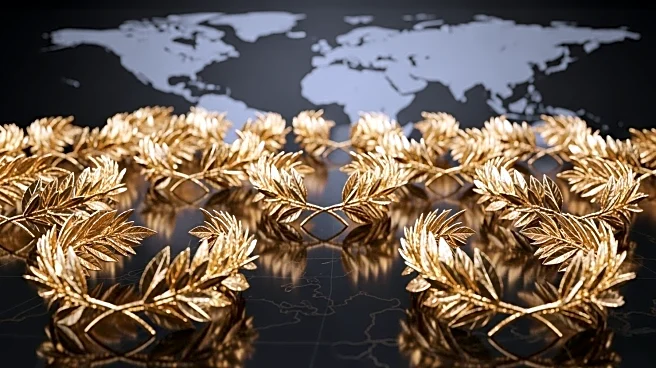What's Happening?
The 2025 Nobel Prizes have commenced with the announcement of the Nobel Prize in Physiology or Medicine, awarded to Mary Brunkow, Fred Ramsdell, and Shimon Sakaguchi for their work on peripheral immune tolerance. The Nobel Prizes, established by Alfred Nobel, are awarded annually in six categories: physics, chemistry, medicine, literature, peace, and economics. This year's announcements will continue through October 13. The Nobel Peace Prize is drawing significant attention, with President Trump claiming he deserves the award for his efforts in ending wars, although experts suggest his chances are slim.
Why It's Important?
The Nobel Prizes are among the most prestigious international awards, recognizing significant contributions to humanity. This year's awards highlight groundbreaking research in medicine that could lead to new treatments for cancer and autoimmune diseases. The Peace Prize, in particular, is closely watched due to ongoing global conflicts and President Trump's controversial claims. The awards not only honor individual achievements but also influence public discourse and policy, encouraging further research and innovation. The focus on President Trump underscores the intersection of politics and global recognition, raising questions about the criteria for peace and diplomacy.
What's Next?
The Nobel Prize announcements will continue, with upcoming awards in physics, chemistry, literature, peace, and economics. The Peace Prize, in particular, will be closely monitored for its potential impact on international relations and diplomacy. The outcomes of these awards may influence future nominations and the global perception of the Nobel Prizes. As the ceremonies approach, the focus will shift to the laureates' contributions and the broader implications of their work. The Nobel Foundation will continue to manage the endowment and ensure the prizes reflect Alfred Nobel's vision of benefiting humanity.









